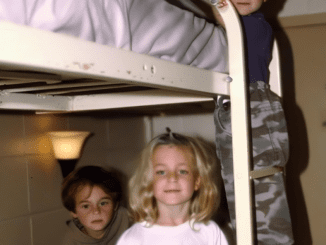In today’s world, where social media platforms are flooded with beauty standards and influencers shaping the latest trends, it’s no surprise that some people go to extreme lengths to achieve their desired look. One such story is that of a woman who underwent 43 cosmetic procedures in a quest to transform herself into a real-life Barbie doll. However, while her appearance may have once been celebrated by some, others are now comparing her look to a “zombie” instead of the iconic doll she hoped to resemble. This transformation story raises important questions about beauty, self-image, and the pressures of societal expectations.
The Journey to a ‘Perfect’ Look: 43 Procedures and Counting
Many of us are familiar with the term “Barbie” – a symbol of beauty, youth, and perfection. For some, this representation of flawless features becomes an ideal to chase. But for one woman, the desire to look like the iconic doll drove her to undergo an astounding 43 cosmetic procedures. The procedures included everything from rhinoplasty (nose jobs) to lip fillers, breast implants, and even skin-tightening treatments.
What makes her story even more dramatic is that each procedure pushed her closer to a more exaggerated version of beauty, far from what most would consider natural. Her goal was clear: to resemble the plastic doll, famous for her slim waist, long legs, and large chest. At first glance, her transformation may have seemed like a victory in the pursuit of physical perfection.
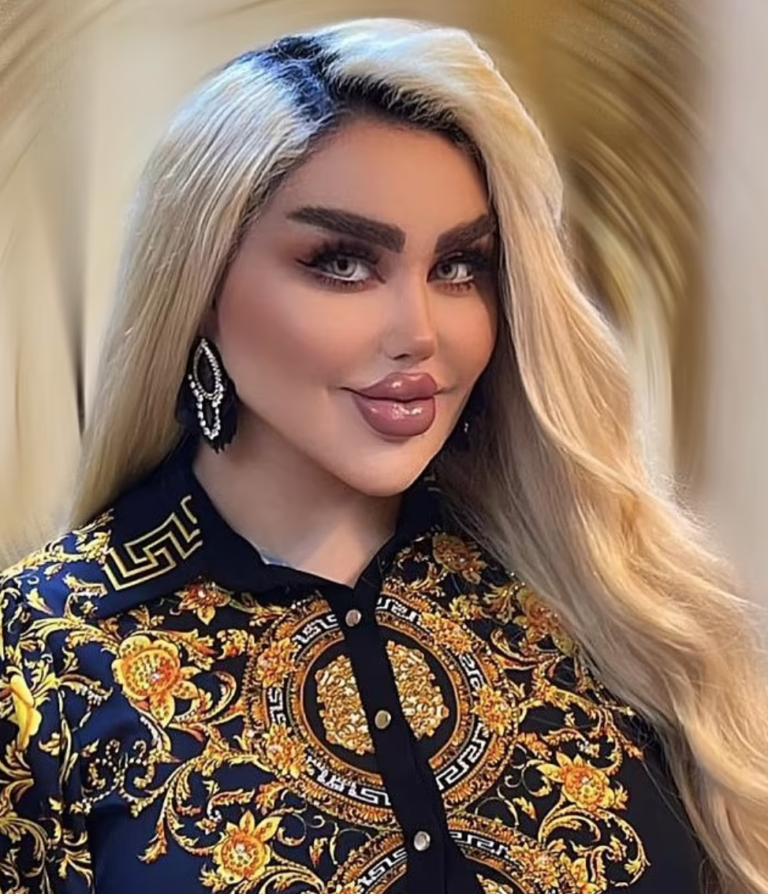
The Barbie Doll Standard: Unrealistic Expectations or Personal Choice?
It’s crucial to ask: why do some people go to such extremes to mirror a doll? Barbie, originally introduced as the epitome of unattainable beauty, has always been a controversial figure. While the doll’s image has evolved over the years to include diverse body types, skin tones, and careers, the original design still lingers as a symbol of a seemingly perfect woman.
But in a world where self-expression is celebrated, why do people feel the need to conform to one singular ideal? Is it a matter of personal choice, or are we all subconsciously influenced by the barrage of media images that flood our screens daily? This quest for beauty is not just about following trends—it’s also about self-validation and feeling seen in a world that places immense value on appearances.
The ‘Zombie’ Criticism: A Harsh Reality Check
While the woman’s intentions may have been to look like a living version of Barbie, many critics have been quick to label her as resembling something far more sinister: a “zombie.” The exaggerated features she now sports, like unnaturally plump lips, an impossibly narrow waist, and a sculpted face, have left some questioning whether she has gone too far in her pursuit of the perfect look.
But why is this comparison so harsh? Could it be that society has created unrealistic beauty standards to the point where any deviation from the norm—especially one as extreme as this—becomes the target of ridicule? The term “zombie” implies a lifeless, unnatural appearance, which in this case, is a cruel interpretation of a woman who is simply trying to live out her idea of beauty.
Beauty or Bizarre? Navigating the Line Between Fashion and Obsession
It’s easy to look at someone who has undergone a significant transformation and think of them as “bizarre” or “unnatural.” But where do we draw the line between personal style and obsession? At what point does the pursuit of beauty become harmful to one’s mental and physical well-being?
Experts warn that excessive cosmetic procedures can result in physical risks such as scarring, complications, and even disfigurement. But the emotional and psychological toll can be just as damaging. The pressure to conform to an idealized version of beauty can lead to a vicious cycle of self-doubt, constant dissatisfaction, and ultimately, an unhealthy obsession with appearance.
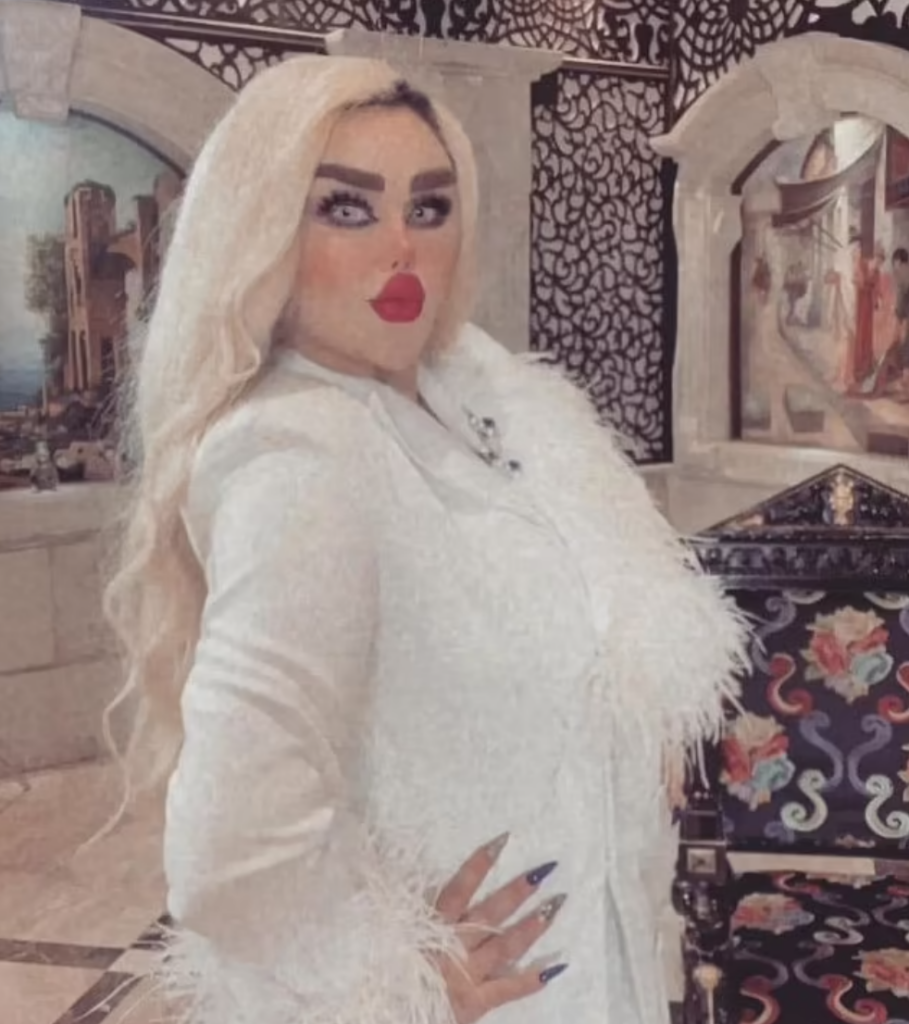
Is Society’s Obsession with Perfection to Blame?
Let’s be real—society places a premium on beauty. Just scroll through Instagram, TikTok, or any other social media platform, and you’ll find countless influencers showing off their perfectly curated lives. While beauty has always been valued, the rise of social media has accelerated our obsession with perfection.
We’ve seen an influx of plastic surgery celebrities and influencers turning their transformations into business ventures. Many women (and men) are inspired by these influencers to alter their looks to fit an idealized version of beauty that doesn’t always reflect reality. Is this the world we’ve created? A world where being “perfect” is more important than being authentic?
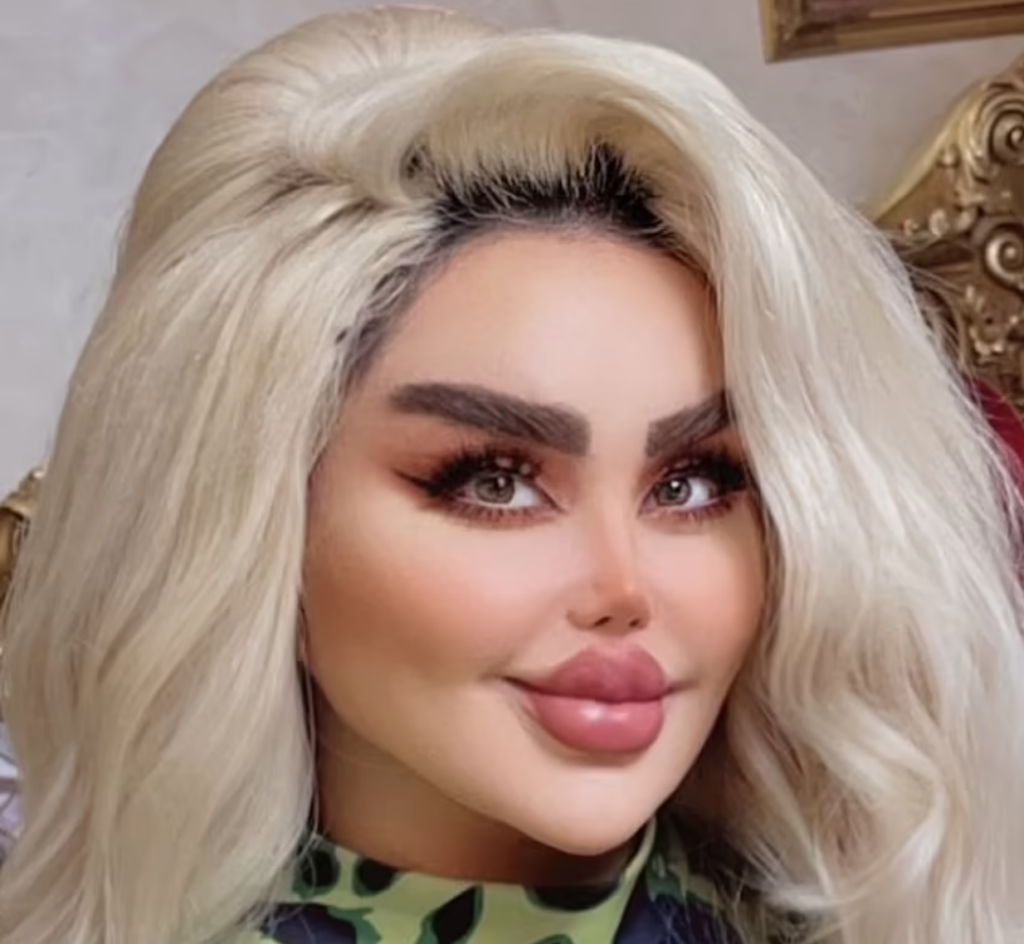
The Dangers of Pursuing Perfection at All Costs
The story of this woman’s transformation is a cautionary tale. While everyone has the right to modify their appearance as they see fit, the pursuit of perfection can come with unintended consequences. After undergoing 43 cosmetic procedures, her journey is no longer about self-improvement, but rather a fixation on an unattainable and perhaps unrealistic ideal.
The criticism she faces, including the “zombie” label, underscores the dangers of pursuing perfection at all costs. It’s a reminder that no matter how much one alters their appearance, the underlying issues of self-worth and self-acceptance can never be fixed by external changes alone. Instead of focusing on how we look, perhaps we should refocus on embracing our imperfections as part of our unique beauty.
Conclusion: Beauty Should Be a Reflection of Self-Expression, Not Conformity
In the end, the quest to become a living Barbie doll isn’t about achieving beauty—it’s about finding self-acceptance. While cosmetic procedures may provide temporary satisfaction, true happiness comes from within. The criticism this woman faces for her transformation highlights the dangers of prioritizing external appearances over internal well-being.
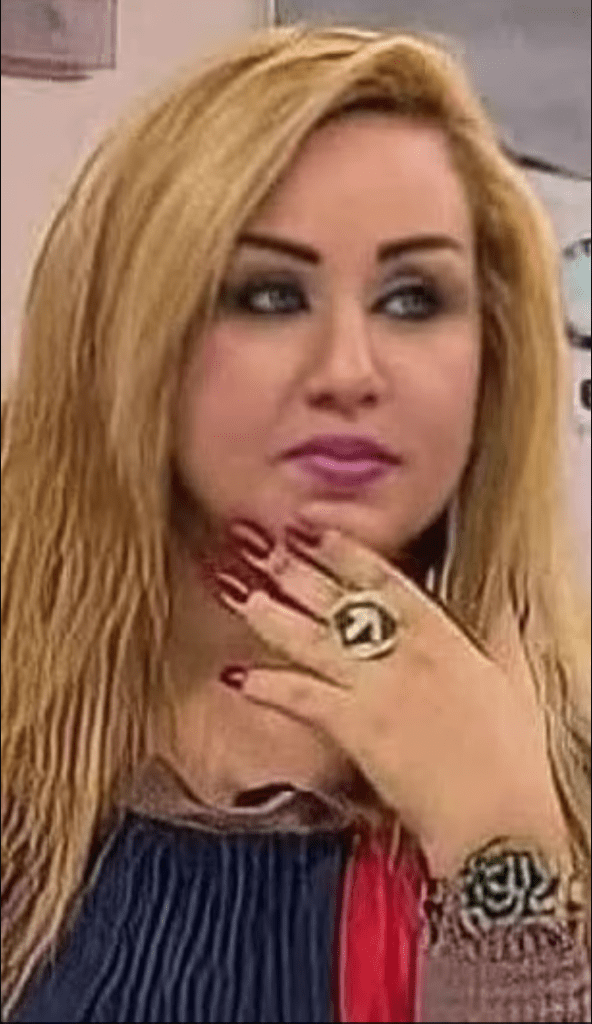
We should be careful not to judge others too harshly for their choices, but also recognize that beauty is subjective. It’s not about fitting into a mold set by society or living up to unrealistic standards; it’s about feeling confident in who we are. Let this be a reminder that beauty is diverse, and no one should feel pressured to look a certain way to be valued.
Ultimately, our differences are what make us unique, and that’s the real beauty we should all celebrate.
